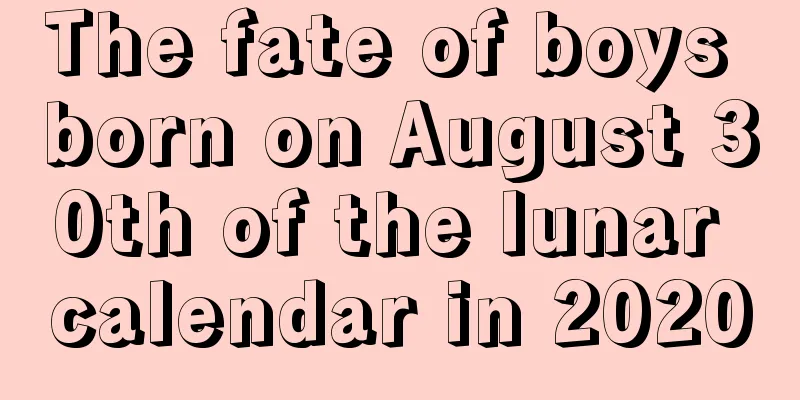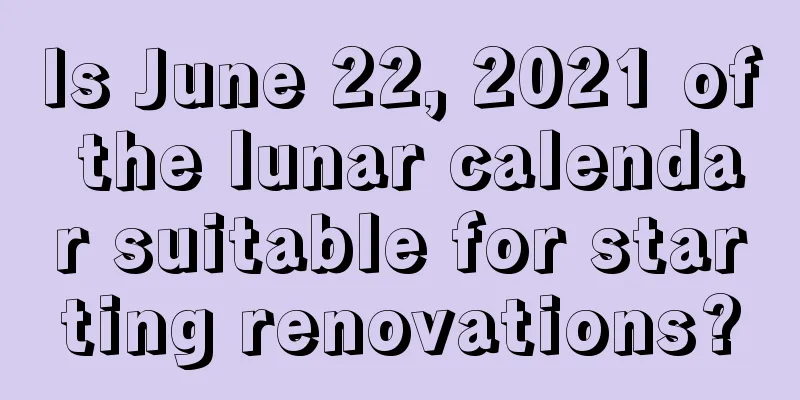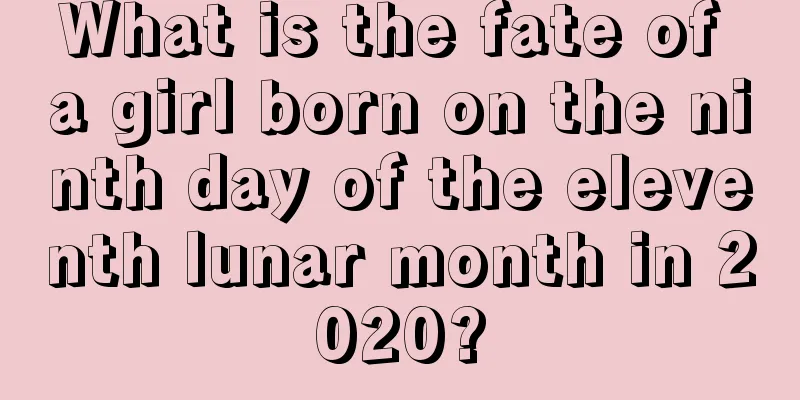What are the three major principles of modern Feng Shui?

|
Introduction: Ancient Chinese scientists looked up at the sky, looked down at the geography, and learned from their bodies and far away. After 5,000 years of practice, research, induction and understanding, they formed the world-renowned oriental science - Chinese Feng Shui. Chinese Feng Shui also includes its own unique technical operating methods, such as the use of compasses and needle-pointing compasses. For beginners, it may be difficult to understand those rigorous theoretical systems. Perhaps they can start from the overall perspective and understand the three major principles of Chinese Feng Shui with a far-sighted vision. Mr. Shui Mo’s Feng Shui special topic contains more articles about Feng Shui, allowing you to understand Feng Shui knowledge more quickly. 1. The principle of the unity of heaven, earth and manAstronomy, geography and human science are the three major scientific pillars of Chinese Feng Shui. The unity of heaven, earth and man is the highest principle of Chinese Feng Shui. This is actually related to the Chinese creation myth "Pangu splitting the sky and the earth". Originally, the sky and the earth were in chaos, and Pangu, holding a giant axe, split the sky and the earth into two halves. The two energies gradually separated, the yang and clear energy rose to become the sky, and the yin and turbid energy descended to become the earth. The heaven and the earth are changing every day, and humans are between them. Therefore, although Chinese Feng Shui aims to understand nature and make people's lives more fulfilling, it is not centered on human will. Instead, it has the concept and awe of heaven and earth and adopts the principle of the unity of heaven, earth and man. 2. The principle of mutual generation and mutual restraint of the five elementsThe Five Elements is a material concept in ancient China. The Five Elements specifically refer to: gold, wood, water, fire, and earth. The ancient Chinese believed that nature is made up of five elements. With the rise and fall of these five elements, nature changes, which not only affects human destiny, but also makes all things in the universe cycle endlessly. The law of mutual generation among the Five Elements is: water generates wood, wood generates fire, fire generates earth, earth generates metal, and metal generates water; mutual restraint means mutual restraint and inhibition. The order of mutual restraint among the Five Elements is: metal restrains wood, wood restrains earth, earth restrains water, water restrains fire, and fire restrains metal. Therefore, in ancient Chinese Feng Shui, the five elements must be taken into consideration when deciding on the architectural form and choosing the residential orientation. Three: Principle of adapting measures to local conditionsChina has a vast territory with great differences in climate, soil and architectural forms. The northwest is dry and rainy, so people live in cave dwellings. The southwest is humid and rainy, with many insects and animals, so people live in bamboo houses with fences. The housing is different due to the different geographical locations. Chinese Feng Shui distinguishes houses in different environments, such as houses in towns, houses in the wilderness, and houses in valleys. Therefore, in the application of Feng Shui, each has its own emphasis. For houses in the wilderness and valleys, because they are closely related to the surrounding natural geographical environment, more emphasis is placed on the form method; while for houses in towns, because they are restricted by their external environment, both the form method and the principle method are often considered. |
<<: Do you know the Feng Shui knowledge of burning incense and worshipping Buddha with sincerity?
>>: Analysis of the Feng Shui Effect of the Big Dipper
Recommend
What are the do's and don'ts on April 25th of the lunar calendar in 2019?
The weather starts to get hot in the fourth month...
Is April 24th of the lunar calendar in 2022 a good day? Can we worship and pray? Is it a good day?
In the fourth month of the lunar calendar, the tem...
Is it okay to pray for a child on the fifth day of the eighth lunar month in 2019? When is the due date?
2019 is the Year of the Pig, and the eighth month ...
What are the nicknames for the Mid-Autumn Festival on August 15th? Analysis of the names of the Mid-Autumn Festival!
Introduction: Mid-Autumn Festival is an important ...
Would it be a bad idea to hold a funeral on April 13th of the lunar calendar in 2021? What should you pay attention to during a funeral?
Funeral is a very particular matter, and the choic...
What is the lucky direction of the Spring Equinox on March 20, 2020? Which zodiac sign is in conflict with the Spring Equinox?
Introduction: The direction of the God of Happines...
Is the second day of the ninth lunar month in 2017 a suitable date for burial? Is it good to be buried?
Introduction: In a person’s life, not only birth i...
What is the 26th day of the twelfth lunar month in 2018?
In the second half of the twelfth lunar month, bas...
Is it a good idea to pick up the car on October 17th of the lunar calendar in 2017?
In early winter, October, you begin to feel a lit...
Is it a good idea to sign the contract and open the business on December 21st of the lunar calendar in 2018?
With the continuous development of society, there ...
Is the sixth day of the first lunar month in 2019 a suitable date to burn incense and pray? What are the customs on the sixth day of the first lunar month?
Introduction: Burning incense and praying for bles...
Where is the God of Wealth on the 26th day of the sixth lunar month in 2018?
"After all, the scenery of West Lake in June...
Query the position of the God of Happiness on the eighth day of the fifth lunar month in 2019
The "Book of Songs" records that "...
What kind of glutinous rice balls are best for the 12 zodiac signs to eat during the Lantern Festival?
Introduction: The joyous atmosphere of the Spring ...
Will a girl born on Qingming Festival have a smooth marriage? What is the saying about being born on Qingming Festival being a heavenly fetus?
Introduction: People born on different days have d...







![Is the [Rain Water] solar term in 2020 a good day? Is it an auspicious day?](/upload/images/67ca58c041192.webp)

